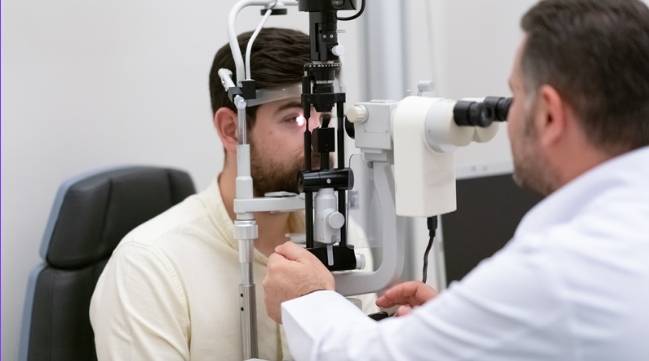Are you searching for a career that not only pays the bills but also fills your heart with joy and purpose? Look no further! In this article, we’ll explore 20 rewarding careers that give you the opportunity to make a genuine difference in people’s lives. Get ready to embark on a journey of discovery as we delve into the world of meaningful work.
What You’ll Learn
- The importance of choosing a rewarding career
- Essential qualities for careers in helping others
- In-depth information on 20 fulfilling careers, including:
- Roles and responsibilities
- Average salaries
- Required qualifications
- Why each career is rewarding
- How to choose the right career for you
- Practical steps to get started in a rewarding career
Prepare to be inspired as we explore the possibilities that await you in the realm of careers that can change people’s lives for the better. By the end of this article, you’ll have a clearer understanding of the diverse range of options available and be equipped with the knowledge to make an informed decision about your future career path.
What Makes a Career Rewarding?
When it comes to finding a rewarding career, it’s essential to consider the impact your work will have on others. A truly fulfilling job is one that allows you to contribute positively to society and make a tangible difference in people’s lives. Whether you’re helping individuals overcome challenges, providing essential services, or working towards a greater cause, the sense of purpose and satisfaction that comes with making a difference is unparalleled.
Impact on Others
One of the most significant factors in determining the rewarding nature of a career is the impact it has on others. When you dedicate your time and energy to helping people, whether it’s through education, healthcare, social services, or any other field, you have the power to transform lives. The ripple effect of your work can extend far beyond the individuals you directly assist, creating a positive change in communities and society as a whole.
Personal Satisfaction
In addition to the external impact of your work, a rewarding career also offers a deep sense of personal satisfaction. When you align your values, passions, and skills with a job that allows you to make a difference, you’ll find yourself waking up each morning with a renewed sense of purpose and enthusiasm. The fulfillment that comes from knowing you’re contributing to something meaningful is a powerful motivator and can lead to a more positive outlook on life.
Career Growth and Opportunities
Rewarding careers often come with ample opportunities for growth and advancement. As you gain experience and develop your skills in a field dedicated to helping others, you’ll find that doors open to new and exciting challenges. Many of these careers offer clear progression paths, allowing you to take on additional responsibilities and make an even greater impact over time. The stability and long-term prospects associated with careers in helping professions provide a sense of security and the chance to build a lasting, meaningful career.
Essential Qualities for Careers in Helping Others
While rewarding careers come in many forms, there are certain qualities that are essential for success in any field dedicated to helping others. If you possess these attributes, you’ll be well-equipped to thrive in a career that makes a difference.
Empathy and Compassion
At the heart of any career in helping others lies empathy and compassion. The ability to put yourself in someone else’s shoes, understand their perspective, and respond with kindness and understanding is crucial. When you approach your work with genuine care and concern for those you serve, you’ll be better able to connect with them and provide the support they need.
Communication Skills
Effective communication is another key skill for careers in helping professions. Whether you’re working with clients, patients, students, or colleagues, the ability to listen actively, express yourself clearly, and adapt your communication style to different audiences is essential. Strong communication skills enable you to build trust, convey important information, and collaborate effectively with others.
Problem-Solving Abilities
Helping others often involves navigating complex challenges and finding creative solutions. The ability to think critically, analyze situations from multiple angles, and develop effective strategies is invaluable in rewarding careers. When you’re able to approach problems with a solution-oriented mindset and think on your feet, you’ll be better equipped to make a positive impact in even the most challenging circumstances.
A note about Salaries
The current salaries provided for the 20 rewarding careers are sourced from available data up to the year 2023. As specific current salary data for 2024 may not be readily available at the moment, it is advisable to consult the latest sources like official government reports, job listing websites, and professional associations for the most up-to-date salary information for each career in 2024. These sources are regularly updated to reflect the most recent salary trends and adjustments in the job market.
Top 20 Rewarding Careers
Now that we’ve explored what makes a career rewarding and the essential qualities for success in helping professions, let’s dive into our list of the top 20 careers that can change people’s lives.
1. Teacher

Roles and Responsibilities
Teachers play a crucial role in shaping the minds and futures of their students. They are responsible for creating engaging lesson plans, delivering instruction, assessing student progress, and providing support and guidance both inside and outside the classroom.
Average Salary
The average salary for a teacher varies depending on factors such as location, subject area, and level of education. Teachers earn an average annual salary of $69,554, providing invaluable guidance to the next generation.
Required Qualifications
To become a teacher, you typically need a bachelor’s degree in education or a related field, along with a state-issued teaching license or certification. Some positions may require a master’s degree or specialized training in a particular subject area.
Why It’s Rewarding
Teaching is a profoundly rewarding career that allows you to shape the lives of young people and help them reach their full potential. As a teacher, you have the opportunity to inspire a love of learning, foster critical thinking skills, and provide support and encouragement to students as they navigate the challenges of growing up.
2. Nurse

Roles and Responsibilities
Nurses are the backbone of the healthcare system, providing essential care and support to patients in a variety of settings. They assess patient needs, administer treatments and medications, monitor vital signs, and educate patients and their families about health and wellness.
Average Salary
The average salary for a nurse varies depending on factors such as location, specialty, and level of education. Nurses have an average salary of $82,750, with variations based on specialization and experience.
Required Qualifications
To become a registered nurse, you typically need to earn a bachelor’s degree in nursing (BSN) or an associate’s degree in nursing (ADN) from an accredited program. You must also pass the National Council Licensure Examination (NCLEX) to obtain a nursing license.
Why It’s Rewarding
Nursing is a deeply fulfilling career that allows you to make a direct and tangible difference in the lives of others. As a nurse, you have the opportunity to provide comfort, support, and care to patients during some of the most vulnerable and challenging times in their lives. The relationships you build with patients and the sense of purpose that comes from helping others make nursing a truly rewarding profession.
3. Social Worker

Roles and Responsibilities
Social workers help individuals, families, and communities cope with challenges and improve their overall well-being. They assess client needs, develop treatment plans, provide counseling and support services, and connect clients with resources and assistance programs.
Average Salary
The average salary for a social worker varies depending on factors such as location, specialty, and level of education.Social workers support those in crisis with an average annual salary of $49,150.
Required Qualifications
To become a social worker, you typically need a bachelor’s degree in social work (BSW) or a related field. Clinical social workers must also hold a master’s degree in social work (MSW) and obtain state licensure.
Why It’s Rewarding
Social work is a challenging but immensely rewarding career that allows you to make a positive impact on individuals and communities facing difficult circumstances. As a social worker, you have the opportunity to empower people, advocate for social justice, and help create lasting change in people’s lives.
4. Therapist

Roles and Responsibilities
Therapists help individuals, couples, and families work through mental health issues, emotional challenges, and life transitions. They provide a safe and supportive environment for clients to explore their thoughts and feelings, develop coping strategies, and make positive changes in their lives.
Average Salary
The average salary for a therapist varies depending on factors such as location, specialty, and level of education.Therapists, including mental health counselors and marriage and family therapists, earn about $50,770 annually
Required Qualifications
To become a therapist, you typically need a master’s degree in psychology, counseling, or a related field. Most states also require therapists to obtain licensure, which involves completing supervised clinical experience and passing a licensing exam.
Why It’s Rewarding
Being a therapist is a deeply meaningful career that allows you to help people navigate life’s challenges and achieve greater emotional well-being. As a therapist, you have the opportunity to provide support, guidance, and tools for personal growth, empowering your clients to lead more fulfilling lives.
5. Physical Therapist

Roles and Responsibilities
Physical therapists help patients recover from injuries, manage chronic conditions, and improve their overall mobility and function. They develop individualized treatment plans, provide hands-on therapy and exercises, and educate patients on how to prevent future injuries and maintain their physical health.
Average Salary
The average salary for a physical therapist varies depending on factors such as location and level of experience. Physical therapists help individuals recover from injuries with an average annual salary of $89,440.
Required Qualifications
To become a physical therapist, you need to earn a Doctor of Physical Therapy (DPT) degree from an accredited program. Most states also require physical therapists to obtain licensure, which involves passing the National Physical Therapy Examination (NPTE).
Why It’s Rewarding
Physical therapy is a gratifying career that allows you to help people regain their strength, mobility, and independence after an injury or illness. As a physical therapist, you have the opportunity to work closely with patients, celebrate their progress, and make a tangible difference in their quality of life.
6. Firefighter

Roles and Responsibilities
Firefighters are responsible for responding to emergencies, such as fires, accidents, and natural disasters. They work to protect lives and property by extinguishing fires, performing rescues, providing medical assistance, and educating the public on fire safety.
Average Salary
The average salary for a firefighter varies depending on factors such as location and level of experience. Firefighters risk their lives for public safety, earning an average salary of $57,000.
Required Qualifications
To become a firefighter, you typically need a high school diploma or equivalent, along with emergency medical technician (EMT) certification. Firefighters must also complete a rigorous training program at a fire academy and pass physical fitness tests.
Why It’s Rewarding
Being a firefighter is a heroic and rewarding career that allows you to serve your community and make a difference in people’s lives. As a firefighter, you have the opportunity to be there for people during their most desperate moments, providing life-saving assistance and support.
7.

Roles and Responsibilities
Police officers are responsible for maintaining public safety, preventing crime, and enforcing laws. They patrol assigned areas, respond to emergency calls, investigate crimes, make arrests, and build positive relationships with community members.
Average Salary
The average salary for a police officer varies depending on factors such as location and level of experience.Police officers, who are crucial in maintaining public order, have an average salary of $52,000.
Required Qualifications
To become a police officer, you typically need a high school diploma or equivalent, along with a valid driver’s license. Most police departments also require candidates to complete a training program at a police academy and pass physical fitness tests.
Why It’s Rewarding
Being a police officer is a challenging but immensely rewarding career that allows you to serve and protect your community. As a police officer, you have the opportunity to make a positive impact on people’s lives, help maintain public safety, and build trust and relationships with the people you serve.
8. Dentist

Roles and Responsibilities
Dentists diagnose and treat issues related to the teeth, gums, and mouth. They perform routine check-ups, clean teeth, fill cavities, perform extractions, and provide guidance on oral hygiene and preventative care.
Average Salary
The average salary for a dentist varies depending on factors such as location and type of practice. Dentists maintain our oral health and earn a significant average salary of $134,000.
Required Qualifications
To become a dentist, you need to earn a Doctor of Dental Surgery (DDS) or Doctor of Medicine in Dentistry (DMD) degree from an accredited dental school. Dentists must also pass a rigorous licensing exam and meet state-specific requirements to practice.
Why It’s Rewarding
Being a dentist is a fulfilling career that allows you to help people maintain their oral health and confidence. As a dentist, you have the opportunity to alleviate pain, improve smiles, and educate patients on the importance of proper dental care, making a lasting impact on their overall well-being.
9. Pharmacist

Roles and Responsibilities
Pharmacists dispense prescription medications, provide guidance on their proper use, and advise patients on potential side effects and interactions. They also collaborate with healthcare providers to ensure optimal medication therapy and promote public health through immunizations and health screenings.
Average Salary
The average salary for a pharmacist varies depending on factors such as location and type of practice. Pharmacists, the medication experts, earn an impressive average annual salary of $119,000.
Required Qualifications
To become a pharmacist, you need to earn a Doctor of Pharmacy (Pharm.D.) degree from an accredited pharmacy school. Pharmacists must also pass a licensure exam and meet state-specific requirements to practice.
Why It’s Rewarding
Being a pharmacist is a gratifying career that allows you to play a vital role in patient care and safety. As a pharmacist, you have the opportunity to help people manage their health conditions, provide expert advice on medications, and ensure that patients receive the most appropriate and effective treatments.
10. Speech-Language Pathologist

Roles and Responsibilities
Speech-language pathologists assess, diagnose, and treat communication and swallowing disorders in children and adults. They develop individualized treatment plans, provide therapy to improve speech, language, and swallowing skills, and educate patients and their families on strategies for effective communication.
Average Salary
The average salary for a speech-language pathologist varies depending on factors such as location and type of practice. Speech-language pathologists, who help people overcome speech disorders, have an average salary of $62,000.
Required Qualifications
To become a speech-language pathologist, you typically need a master’s degree in speech-language pathology from an accredited program. Most states also require speech-language pathologists to obtain licensure, which involves passing a national examination and meeting state-specific requirements.
Why It’s Rewarding
Being a speech-language pathologist is a fulfilling career that allows you to help people overcome communication challenges and improve their quality of life. As a speech-language pathologist, you have the opportunity to work with individuals of all ages, celebrating their progress and empowering them to express themselves effectively.
11. Dietitian

Roles and Responsibilities
Dietitians assess patients’ nutritional needs, develop personalized meal plans, and provide education on healthy eating habits. They work in a variety of settings, including hospitals, schools, nursing homes, and private practice, to help people achieve optimal health through nutrition.
Average Salary
The average salary for a dietitian varies depending on factors such as location and type of practice. Dietitians, who guide people in nutritional health, earn an average annual salary of $49,000.
Required Qualifications
To become a dietitian, you typically need a bachelor’s degree in dietetics, nutrition, or a related field from an accredited program. Many states also require dietitians to obtain licensure or certification, which involves completing supervised practice hours and passing a national examination.
Why It’s Rewarding
Being a dietitian is a rewarding career that allows you to help people improve their health and well-being through the power of nutrition. As a dietitian, you have the opportunity to educate and empower individuals to make positive lifestyle changes, prevent chronic diseases, and achieve their health goals.
12. Optometrist

Roles and Responsibilities
Optometrists examine patients’ eyes, diagnose vision problems, and prescribe corrective lenses or other treatments. They also screen for eye diseases, such as glaucoma and cataracts, and provide guidance on maintaining optimal eye health.
Average Salary
The average salary for an optometrist varies depending on factors such as location and type of practice. Optometrists, specializing in eye care, enjoy a generous average salary of $231,000.
Required Qualifications
To become an optometrist, you need to earn a Doctor of Optometry (O.D.) degree from an accredited optometry school. Optometrists must also pass a national board examination and meet state-specific requirements to obtain licensure.
Why It’s Rewarding
Being an optometrist is a fulfilling career that allows you to help people maintain and improve their vision, which is a crucial aspect of overall well-being. As an optometrist, you have the opportunity to positively impact your patients’ lives by providing expert care, detecting eye diseases early, and helping them see the world more clearly.
13. Service Dog Trainer

Roles and Responsibilities
Service dog trainers work to train dogs to assist individuals with disabilities, such as visual impairments, hearing impairments, mobility issues, and mental health conditions. They teach dogs specific tasks and behaviors to help their human partners navigate daily life and maintain independence.
Average Salary
The average salary for a service dog trainer varies depending on factors such as location, experience, and type of organization. Service dog trainers earn around $34,000 while training dogs to assist individuals with various needs.
Required Qualifications
To become a service dog trainer, you typically need a high school diploma or equivalent, along with extensive experience working with dogs. Many service dog trainers also complete specialized training programs and obtain certifications from organizations such as Assistance Dogs International (ADI).
Why It’s Rewarding
Being a service dog trainer is a highly rewarding career that allows you to make a profound difference in the lives of people with disabilities. As a service dog trainer, you have the opportunity to witness firsthand the incredible bond between a service dog and their human partner, knowing that your work has helped to increase their independence, safety, and overall quality of life.
14. Environmental Scientist

Roles and Responsibilities
Environmental scientists study the environment and work to protect it from pollution, degradation, and other harmful human impacts. They collect and analyze data, develop conservation plans, and provide guidance on environmental policies and regulations.
Average Salary
The average salary for an environmental scientist varies depending on factors such as location, experience, and type of employer. Environmental scientists work to protect our planet, with an average salary of approximately $71,360.
Required Qualifications
To become an environmental scientist, you typically need a bachelor’s degree in environmental science, biology, chemistry, or a related field. Some positions may require a master’s degree or specialized certifications.
Why It’s Rewarding
Being an environmental scientist is a meaningful career that allows you to make a significant impact on the health of our planet and the well-being of future generations. As an environmental scientist, you have the opportunity to contribute to the conservation of natural resources, the development of sustainable practices, and the protection of ecosystems and wildlife.
15. Substance Abuse Counselor

Roles and Responsibilities
Substance abuse counselors work with individuals struggling with addiction to drugs or alcohol. They provide individual and group therapy, develop treatment plans, and offer support and resources to help clients achieve and maintain sobriety.
Average Salary
The average salary for a substance abuse counselor varies depending on factors such as location, experience, and type of employer. Substance abuse counselors, who help individuals overcome addiction, earn an average salary of $44,630.
Required Qualifications
To become a substance abuse counselor, you typically need a bachelor’s degree in psychology, social work, or a related field. Some positions may require a master’s degree or specialized certifications. Many states also require substance abuse counselors to obtain licensure or certification.
Why It’s Rewarding
Being a substance abuse counselor is a challenging but incredibly rewarding career that allows you to help individuals overcome addiction and reclaim their lives. As a substance abuse counselor, you have the opportunity to provide hope, support, and guidance to those struggling with addiction, helping them to build the skills and resilience needed for long-term recovery.
16. Physician

Roles and Responsibilities
Physicians diagnose and treat illnesses, injuries, and other health conditions. They examine patients, order and interpret diagnostic tests, prescribe medications, and provide guidance on preventative care and healthy living.
Average Salary
The average salary for a physician varies widely depending on factors such as specialty, location, and type of practice. Physicians, with their extensive education and training, have a high median annual wage of $208,000.
Required Qualifications
To become a physician, you need to complete a four-year undergraduate degree, followed by a four-year medical school program. After medical school, physicians complete a residency program in their chosen specialty, which can last from 3 to 7 years. Physicians must also pass a licensing exam and meet state-specific requirements to practice medicine.
Why It’s Rewarding
Being a physician is a highly rewarding career that allows you to make a significant impact on people’s health and well-being. As a physician, you have the opportunity to diagnose and treat a wide range of conditions, alleviate suffering, and help patients live longer, healthier lives. The deep sense of purpose and the ability to form meaningful relationships with patients make the challenging years of education and training well worth it.
17. Financial Coach

Roles and Responsibilities
Financial coaches work with individuals and families to help them achieve their financial goals, such as paying off debt, saving for retirement, or building wealth. They provide education, guidance, and support to help clients develop healthy financial habits and make informed decisions about their money.
Average Salary
The average salary for a financial coach varies depending on factors such as location, experience, and type of employer. Financial coaches help others achieve financial well-being, with an average salary of $66,560, varying widely based on their client base and services offered.
Required Qualifications
To become a financial coach, you typically need a bachelor’s degree in finance, accounting, economics, or a related field. Some financial coaches also obtain certifications, such as the Certified Financial Planner (CFP) or the Accredited Financial Counselor (AFC) designation.
Why It’s Rewarding
Being a financial coach is a fulfilling career that allows you to help people take control of their finances and achieve their dreams. As a financial coach, you have the opportunity to empower individuals and families with the knowledge and tools they need to make smart financial decisions, overcome financial challenges, and build a more secure future.
18. Fitness Trainer

Roles and Responsibilities
Fitness trainers work with individuals and groups to help them achieve their health and fitness goals. They design personalized workout plans, provide guidance on proper exercise techniques, and offer motivation and support to help clients stay on track.
Average Salary
The average salary for a fitness trainer varies depending on factors such as location, experience, and type of employer. Fitness trainers, who promote healthy lifestyles, earn an average annual salary of $40,700.
Required Qualifications
To become a fitness trainer, you typically need a high school diploma or equivalent, along with certification from a recognized organization, such as the American Council on Exercise (ACE) or the National Academy of Sports Medicine (NASM). Some employers may prefer candidates with a bachelor’s degree in exercise science, kinesiology, or a related field.
Why It’s Rewarding
Being a fitness trainer is a rewarding career that allows you to help people improve their physical health, boost their confidence, and enhance their overall well-being. As a fitness trainer, you have the opportunity to inspire and motivate others to adopt healthy habits, overcome challenges, and achieve their fitness goals, making a positive impact on their lives.
19. Occupational Therapist

Roles and Responsibilities
Occupational therapists work with individuals who have physical, developmental, or cognitive disabilities to help them develop the skills needed for daily living and working. They assess patients’ needs, develop treatment plans, and provide therapy to help patients regain independence and improve their quality of life.
Average Salary
The average salary for an occupational therapist varies depending on factors such as location, experience, and type of employer. Occupational therapists help patients recover and adapt, with an average salary of $86,280..
Required Qualifications
To become an occupational therapist, you need to earn a master’s degree in occupational therapy from an accredited program. Occupational therapists must also pass a national certification exam and meet state-specific requirements to obtain licensure.
Why It’s Rewarding
Being an occupational therapist is a fulfilling career that allows you to help people overcome challenges and lead more independent, meaningful lives. As an occupational therapist, you have the opportunity to work with individuals of all ages, from premature infants to elderly adults, helping them to develop the skills and confidence needed to participate in the activities that matter most to them.
20. Chaplain

Roles and Responsibilities
Chaplains provide spiritual guidance and support to individuals in various settings, such as hospitals, schools, prisons, and military installations. They offer counseling and emotional support to those experiencing difficult times, perform religious ceremonies, and serve as a source of comfort and hope.
Average Salary
The average salary for a chaplain varies depending on factors such as location, experience, and type of employer. Chaplains, offering spiritual support in times of need, earn an average annual salary of $46,000.
Required Qualifications
To become a chaplain, you typically need a bachelor’s degree in religion, divinity, or a related field, along with ordination or endorsement from a recognized religious organization. Some positions, such as those in healthcare or the military, may require additional training or certification.
Why It’s Rewarding
Being a chaplain is a deeply meaningful career that allows you to provide spiritual and emotional support to people during some of life’s most challenging moments. As a chaplain, you have the opportunity to offer comfort, guidance, and hope to individuals facing illness, loss, or other hardships, making a profound difference in their lives.
How to Choose the Right Career for You
With so many rewarding careers to choose from, it can be challenging to know which path is right for you. Here are some steps you can take to help you make an informed decision:
Assess Your Skills and Interests
Take some time to reflect on your strengths, passions, and values. Consider what activities bring you joy and fulfillment, and think about the skills you excel at. Understanding yourself is a crucial first step in choosing a career that aligns with your interests and abilities.
Consider the Impact You Want to Make
Think about the kind of difference you want to make in the world and the lives of others. Do you want to work directly with people, or do you prefer to make an impact behind the scenes? Consider the issues and causes that matter most to you, and look for careers that allow you to contribute to those areas.
Explore Different Fields
Research a variety of rewarding careers and learn more about the day-to-day responsibilities, required qualifications, and potential career paths. Talk to people working in fields that interest you, attend job fairs or informational interviews, and consider internships or volunteer opportunities to gain hands-on experience.
Education and Certification Requirements
Consider the education and certification requirements for the careers that interest you. Some may require advanced degrees or specialized training, while others may have more flexible entry points. Make sure you are willing and able to invest the time and resources needed to meet these requirements.
Practical Steps to Get Started in a Rewarding Career
If you’re feeling inspired to pursue a rewarding career, here are some practical steps you can take to get started:
Educational Pathways
Research the educational requirements for the careers that interest you and start exploring programs that can help you meet those requirements. This may involve earning a degree, completing a certificate program, or pursuing specialized training.
Gaining Relevant Experience
Look for opportunities to gain hands-on experience in your field of interest, such as internships, volunteer work, or entry-level positions. This can help you build your skills, network with professionals, and gain valuable insights into the day-to-day realities of the career.
Networking and Mentorship
Connect with people who are already working in the fields that interest you. Attend industry events, join professional organizations, and seek out mentors who can offer guidance and support as you navigate your career path.
Frequently Asked Questions (FAQs)
What job is most rewarding?
The most rewarding job is one that aligns with your personal values, interests, and skills. What is fulfilling for one person may not be for another, so it’s essential to reflect on what matters most to you and what kind of impact you want to make in the world.
Can I find a job that helps people?
Absolutely! There are countless careers that allow you to make a positive difference in people’s lives, from healthcare and education to social work and environmental conservation. The key is to identify the issues and populations you are most passionate about serving and to explore careers that align with those interests.
Will a job that helps people always be rewarding?
While helping others can be incredibly fulfilling, it’s important to recognize that every job comes with its own challenges and frustrations. Even the most rewarding careers can have difficult days or demanding responsibilities. The key is to find a balance between the rewarding aspects of the work and the practical realities of the job, and to make sure you have a strong support system and self-care practices in place.
Conclusion
In a world full of career options, choosing a path that allows you to make a meaningful difference in the lives of others can be one of the most rewarding decisions you’ll ever make. Whether you’re drawn to the helping professions, environmental conservation, or spiritual guidance, there are countless opportunities to build a career that aligns with your values and passions.
By exploring the diverse range of rewarding careers available, assessing your own skills and interests, and taking practical steps to gain education and experience, you can set yourself on the path to a fulfilling and impactful career. Remember, the journey may not always be easy, but the rewards of knowing you are making a positive difference in the world and in the lives of others are truly priceless.
So, take the first step today. Start exploring, dreaming, and planning for a career that not only pays the bills but also fills your heart with joy and purpose. The world needs more compassionate, dedicated professionals like you, and there’s no better time to start making your mark than now.
Key Takeaways
- Rewarding careers come in many forms, from healthcare and education to environmental conservation and spiritual guidance.
- The most fulfilling career is one that aligns with your personal values, interests, and skills, and allows you to make a meaningful impact on others.
- To choose the right career path, assess your strengths and passions, explore different fields, and consider the education and experience requirements.
- Real-life success stories can provide inspiration and insight into the joys and challenges of rewarding careers.
- Practical steps to get started include pursuing relevant education, gaining hands-on experience, and building a supportive network of mentors and colleagues.
- While rewarding careers can be challenging at times, the satisfaction of knowing you are making a positive difference in the world is truly priceless.











